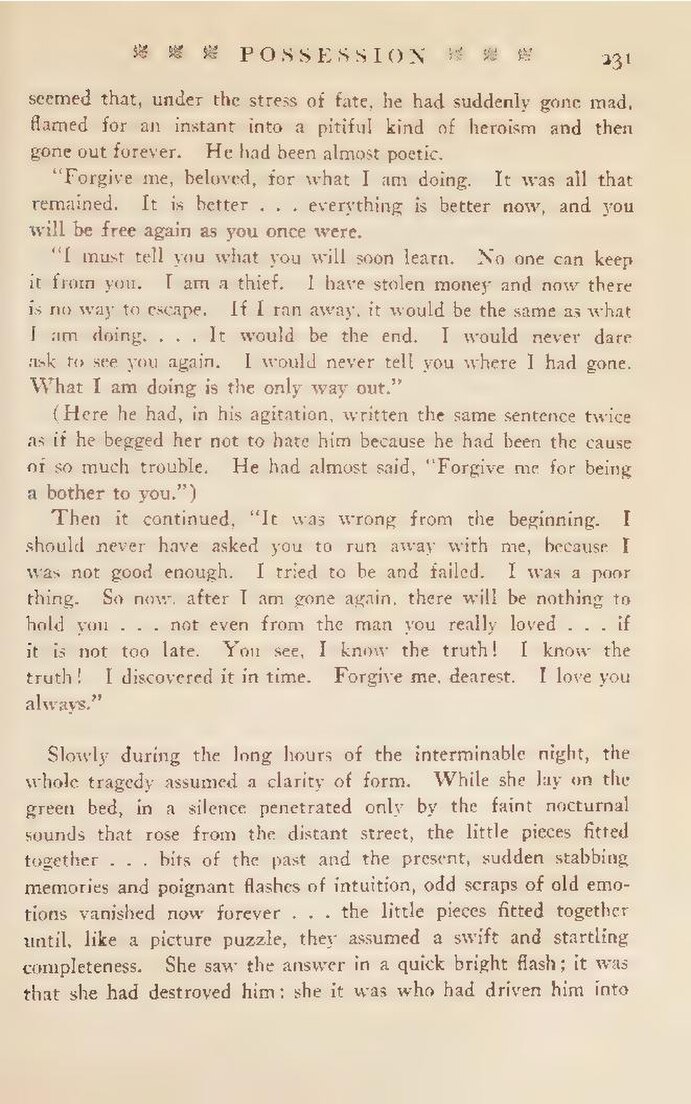seemed that, under the stress of fate, he had suddenly gone mad, flamed for an instant into a pitiful kind of heroism and then gone out forever. He had been almost poetic.
"Forgive me, beloved, for what I am doing. It was all that remained. It is better . . . everything is better now, and you will be free again as you once were.
"I must tell you what you will soon learn. No one can keep it from you. I am a thief. I have stolen money and now there is no way to escape. If I ran away, it would be the same as what I am doing. . . . It would be the end. I would never dare ask to see you again. I would never tell you where I had gone. What I am doing is the only way out."
(Here he had, in his agitation, written the same sentence twice as if he begged her not to hate him because he had been the cause of so much trouble. He had almost said, "Forgive me for being a bother to you.")
Then it continued, "It was wrong from the beginning. I should never have asked you to run away with me, because I was not good enough. I tried to be and failed. I was a poor thing. So now, after I am gone again, there will be nothing to hold you . . . not even from the man you really loved . . . if it is not too late. You see, I know the truth! I know the truth! I discovered it in time. Forgive me, dearest. I love you always."
Slowly during the long hours of the interminable night, the whole tragedy assumed a clarity of form. While she lay on the green bed, in a silence penetrated only by the faint nocturnal sounds that rose from the distant street, the little pieces fitted together . . . bits of the past and the present, sudden stabbing memories and poignant flashes of intuition, odd scraps of old emotions vanished now forever . . . the little pieces fitted together until, like a picture puzzle, they assumed a swift and startling completeness. She saw the answer in a quick bright flash; it was that she had destroyed him; she it was who had driven him into
